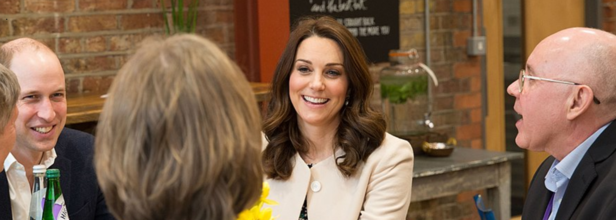
The Big Lunch: The Duke and Duchess Cambridge at Commonwealth
Emotional Skills Are Must For Healthier Society, Says Kate Middleton Highlighting The Need For Compassionate Care
The Princess of Wales, Catherine (Kate Middleton) is now returning to work after her cancer treatment. She is in the middle of launching another stage in her early years education project that will aim for a greater emphasis on teaching emotional skills. She has made a personal call for a "rebalance" in society to prioritize physical and mental health to promote a better recovery and greater compassion in healthcare. She says that emotional skills are as important as physical care for a healthier society.
In her charity's report, she writes: "At times, it can feel like the world is filled with mistrust and misunderstanding, leaving many people feeling isolated and vulnerable during difficult times. The impact of this - poor mental health, addiction and abuse - can be devastating, for individuals and for society."
A New Framework For Emotional Support
The Shaping Us early years project, was founded to raise awareness of the importance of the first five years of a child's life. It now lays down a new framework to tackle deep-rooted problems on the basis of how children are taught from their earliest days and should include building social skills and positive relationship. For Kate, this project is her life's work that can "create a physically and mentally healthier society". For which, she writes in the report, "we must reset, restore, and rebalance. We must invest in humankind".
There is also personal struggle that has driven her in call for more compassion and empathy. During her Christmas carol concert she said, "love is the light that can shine bright, even in our darkest times".
Also Read: Kate Middleton Says Her Cancer Is In Remission, Know What It Means
What Is Compassionate Care?
In healthcare, and what Kate has called for, is called Compassionate Care. It is a person-centered approach to delivering healthcare. It emphasizes on empathy, respect, and support, which can help improve health outcomes. This care not only prioritizes physical well-being, but also the emotional, social, and spiritual well-being of the patient.
As per a 2022 study published in the Journal of Caring Sciences, this approach has five main pillars:
Empathy: This focuses on actively listening to concerns without judgments and making the patient feel comfortable expressing their fear and emotions
Respect: It means to treat every patient with dignity and honor their values
Communication: It is important in building the trust between patient and the healthcare professional
Sensitivity: It means that the care-giver must have the awareness of cultural, emotional and psychological factors that could influence a person's healing experience
Support: It involves emotional and informational support along with the physical support to the patient. This could also mean therapy
Why is it so important?
Compassionate care allows to bridge the gap between clinical treatment and human experience. In fact a 2020 study published in Taylor & Francis, titled Compassion-based interventions for people with long-term physical conditions: a mixed methods systematic review, found that compassion-based interventions may help reduce feelings of fear, isolation, and anxiety in patients, especially for those with long-term conditions.
Check This Out: Prince William And Princess Kate To Launch A Mental Health Support Program by 2025
In fact, the American Medical Association's Principle of Medical Ethics states in its very first point that medical services should be provided with "compassion and respect for human dignity". The UK's National Health Service lists compassion as one of the six core values in its constitution.
As per the American Behavioral Scientist study, compassion involves three main factors:
- Noticing
- Feeling
- Responding
Another study from 2022, published in the Journal of Patient Experience titled Kindness, Listening, and Connection: Patient and Clinician Key Requirements for Emotional Support in Chronic and Complex Care, shows that empathy in healthcare professional and patient relationship significantly influences outcomes. It can also build a strong therapeutic connection.
What makes one a compassionate care giver?
- Active listening
- Personalized care
- Effective Communication
- Emotional Support
- Cultural Sensitivity
The importance on the emphasis of the same in early childhood, as Kate suggested, helps lay the foundations upon which these skills continue to grow throughout one's life. Christian Gut, executive director of the Royal Foundation centre for Early Childhood told the BBC, "It is time we recognised and acted upon the undeniable significance of social and emotional skills and give them the recognition they deserve."
© 2024 Bennett, Coleman & Company Limited

